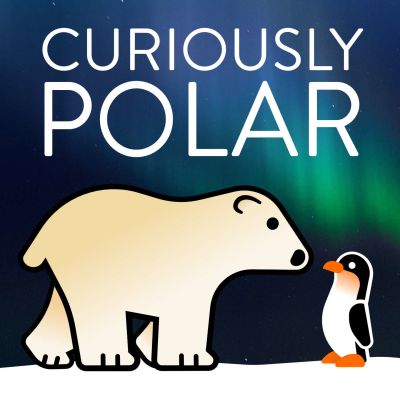The Arctic and the Antarctic are privileged locations for observers interested in understanding how our world is shaped by the forces of nature and the workings of history. These areas have inspired countless humans to undertake epic expeditions of discovery and have witnessed both great triumphs and miserable defeats. As a planetary litmus paper it is at the poles we can detect the effects of natural oscillations and human activities on the global ecosystems.
https://curiouslypolar.com/
119 Operation Morning Light
Watch this on video Buy us a coffee: Chris Henry
A story about space archaeology with Alice Gorman at the Ologies podcast brought us the story about a nuclear-powered Soviet reconnaissance satellite. Part of the Soviet Union's Radar Ocean Reconnaissance Satellite programme, or RORSAT (Russian: Upravlyaemy Sputnik Aktivnyy, US-A), the satellite was assigned the number Kosmos 954 and launched in 1977. The low orbit satellite operated in about 260 to 280 km (160 to 170 mi) and could track marine traffic in real-time if operated under perfect conditions. However, poor weather and high seas could greatly interfere with a RORSAT's tracking ability. RORSATs also had a short lifespan of two to four months. As a result, they were only launched when the U.S.S.R. was expecting a large increase in NATO or U.S. naval activity, for example, just before major naval exercises or during a crisis. Shortly after launch, the satellite became uncontrollable and the emergency boosting manoeuvre necessary to lift the reactor into graveyard orbit could not be carried out. The United States, closely watching Russian satellite activity, realised in November 1977 that Kosmos 954 is in serious trouble and threatened to enter the atmosphere with a possible impact area somewhere on the North American continent. Despite a quick huddle with key allies of NATO and OECD, the public was kept in the dark about the incident. Fearing that the satellite might re-enter over the U.S., raining radioactive debris across heavily populated areas and several major cities, the Department of Energy, with support from the Department of Defense, prepared for the possibility of Kosmos 954 impacting on U.S. territory.
In late January 1978, about 3 months after Kosmos 954 was launched, the satellite fell back down to Earth, raining a trail of debris across the Northwest Territories in Canada. Covering a total area of 124,000 square kilometres (48,000 sq mi) a joint American-Canadian team began a clean-up effort codenamed Operation Morning Light and would spend most of 1978 combing over northern Canada, searching for any fragments of Kosmos 954 that survived re-entry. The teams had to deal with difficult terrain and sub-zero temperatures. The sensitive equipment used to survey the environment for radiation did not always work well in such conditions. However, the team was ultimately able to recover twelve large pieces of the satellite, ten of which were radioactive.
Under the terms of the 1972 Space Liability Convention, a state which launches an object into space is liable for damages caused by that object. For the recovery efforts, the Canadian government billed the Soviet Union C$6,041,174.70 for expenses and additional compensation for future unpredicted expenses; the USSR eventually paid C$3 million. Kosmos 954 has not been the first nor the last of such incidents and have become merely a side note of an era called the Cold War. Today the reactors of many dead RORSATs are still in burial orbit and will eventually fall back down to Earth, which means that humanity will have to launch missions to clean up the reactors sometime in the next couple hundred years.
Literature: Grasty R.L. (1980) The Search for COSMOS-954. In: Haley K.B., Stone L.D. (eds) Search Theory and Applications. NATO Conference Series, vol 8. Springer, Boston, MA. Morrison C.A. (1982) Voyage into the Unknown: The Search for and Recovery of Cosmos 954, Stittsville, Ontario: Canada's Wings. Dean R., Lackenbauer P. W. (2018) Operation Morning Light: An Operational History, Arctic Operational Histories, no.3, Mulroney Institute, Antigonish, Nova Scotia, Canada. Gummer W.K., Campbell F.R., Knight G.B., Ricard J.L. (1980) COSMOS 954 - The Occurrence and Nature of Recovered Debris, Minister of Supply and Services Canada.
